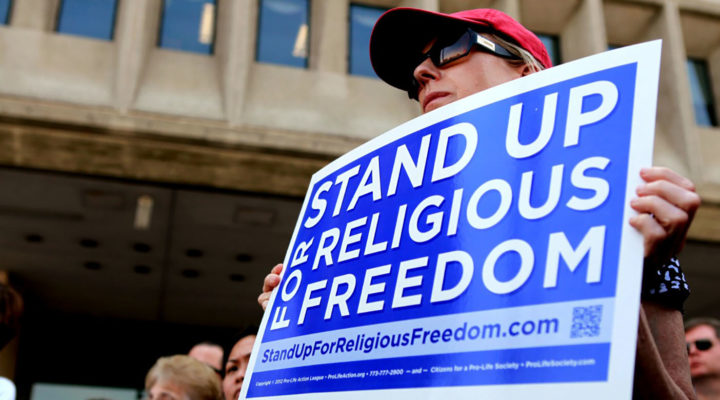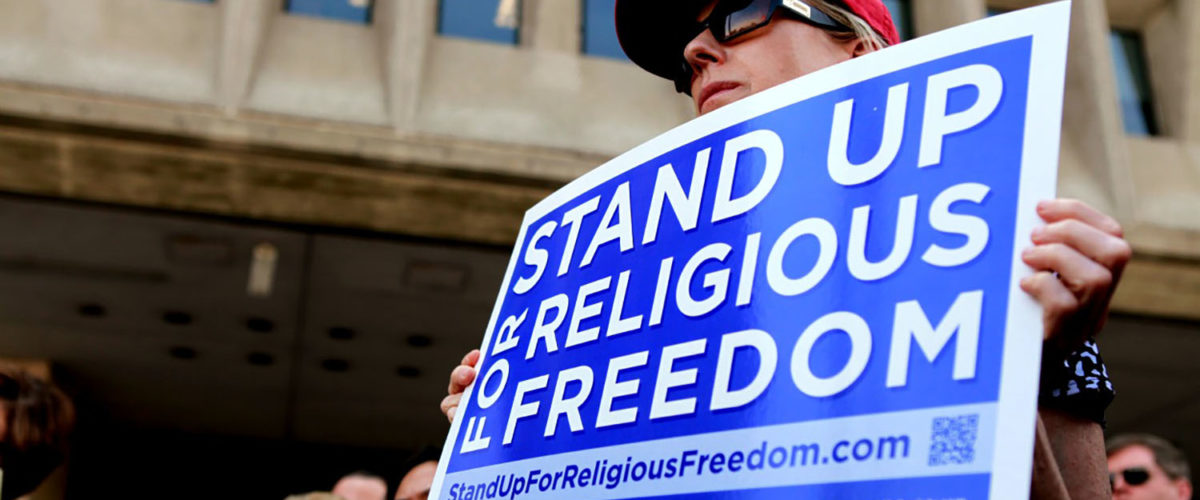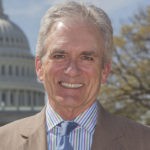Religious freedom has become synonymous with division in the United States thanks to a rash of controversial state laws creating tension between conservative religious groups and LGBT rights.
Corporations and gay rights groups have squared off against states and cities where such measures have been proposed or passed. At the same time longstanding theological and cultural divisions between faith groups have been widened even further.
Now a legal dispute between a Muslim community and a New Jersey township is showing a different side of inter-Christian relationships. Baptist and other Christian organizations accustomed to cultural and legal sparring have joined the fight for the construction of a new mosque.
“It’s good when we can join hands with … folks we are sometimes on the other side of,” said Brent Walker, executive director of the Baptist Joint Committee for Religious Liberty.
Those folks include the Ethics and Religious Liberty Commission and the International Mission Board, both agencies of the Southern Baptist Convention. The National Association of Evangelicals is also supporting the mosque-building case.
It all began when the Becket Fund for Religious Liberty set out to form a diverse religious coalition to back the Islamic Society of Basking Ridge, N.J., in its federal lawsuit against a planning board that denied its building permit application in December.
The denial followed some four years of hearings and numerous modifications to tone down overtly Islamic design elements to reassure neighbors and to conform to local architectural styles.
The New York Times reported in March that the group’s plans met local zoning standards required for houses of worship but that one outspoken opponent cited sharia law as a threat to American liberties.
The Islamic society sued in U.S. District Court for the District of New Jersey.
“A Muslim mosque cannot be subjected to a different land-use approval process than a Christian church simply because local protesters oppose the mosque,” the suit declares.
“A Muslim mosque cannot be subjected to a different land-use approval process than a Christian church simply because local protesters oppose the mosque.”
Standing shoulder-to-shoulder
Close to 20 faith-based organizations filed an amicus brief arguing that the mosque project be approved. They including Hare Krishna, Sikh, Jewish, Muslim and Christian groups.
Walker said it is encouraging to see Christian organizations standing up for the religious rights of the New Jersey Muslim community.
The case involves a core aspect of faith, namely religious liberty, Walker said. That liberty includes the right to worship without facing extraordinary impediments to building a house of worship.
The suit falls under the federal Religious Land Use and Institutionalized Persons Act, which prohibits zoning discrimination based on religion. BJC pushed hard for the 2000 law and wants to see it enforced, Walker said.
He also said the New Jersey case is one of a religious minority facing the Islamophobia prevalent in American society.
“We really felt it was important to stand shoulder-to-shoulder with our Muslim brothers and sisters,” Walker said.
Striving for religious liberty
An official with the National Association of Evangelicals said the religious freedom implications of the New Jersey situation are clear.
“It’s the protection of religious freedom for all Americans” that prompted NAE’s involvement, said Galen Carey, its vice president of government relations.
It’s also about consistency and fairness.
“In many countries, Christians face a hard time getting permission to build a church and in America, that’s not how we do things,” Carey said.
It is not unusual for the association to support plaintiffs of other faiths. Carey said it has backed a Muslim prisoner’s right to grow a beard and Jewish inmates’ right to kosher food behind bars.
It also supported a Muslim woman’s successful Supreme Court case to wear a hijab while working at Abercrombie & Fitch.
And they have supported efforts to protect Christians uncomfortable to serve gay customers, Carey said.
“Americans should not be forced to do things that their conscience tells them not to do,” he said.
In New Jersey, the president of the Islamic Society of Basking Ridge said the proposed mosque also is a matter of conscience.
“I came to America almost 50 years ago with a firm belief in the values that America represents, including freedom of religion and equality before the law,” Mohammad Ali Chaudry said in a statement published by the Becket Fund.
“We are overwhelmed by this extraordinary support from so many diverse groups all supporting our position and affirming that Muslims too have the right to worship in Bernards Township.”




